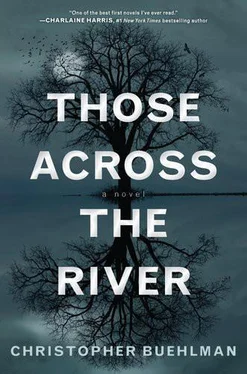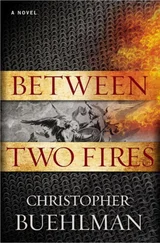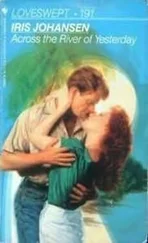The men came into view with their straw hats on and their shadows hugging tight on them since it was the middle of the day. Five of them following Estel, who came out of the hardware store and led the way across the town square. All of them looked bigger than him, or younger, or tougher. Two had shotguns. They walked with big steps like men about to do something. Their big strides carried them past the old pump and past the benches and the insulted rosebushes, and I wondered what mob or sea would not have parted to let them go by.
With their straw hats.
With their shadows tight and dark under them.
As they moved away on the other side of the square, finally looking less like giants, Martin Cranmer, who had ridden back from Morgan with them, walked in front of the window, just on the other side of the glass. He noticed the shapes looking out at him and he twitched his hand as if he were about to wave and then thought better of it. He passed with his head down and then he, too, receded off towards the woods where his home was.
THE YARD IN front of Miles Falmouth’s dirty little house was full of women. A few men, too, but we looked ignored and dispossessed. The connection between the women was humid. Languid. The hive had been broken into and honey had been stolen so they buzzed and crawled all over one another like drugged things. The men were not needed in the yard with talk of posses and guns and hangings, so we stuffed our hands in our pockets and orbited groups of women, or we leaned against the mossy trees and smoked.
People ate and drank and talked, but nobody laughed and nobody smiled, and only this distinguished the scene in Falmouth’s yard from a party. As I walked around the knots of women I heard things like “shame” and “awful” and “the Good Lord,” and then I saw Dora, and she came and draped herself against me, breathing in the smell of my chest and shirt. Her eyes were red from crying and her face was white and tired as if she had not slept, though it was only one o’clock.
I knew this face of hers. This was the face she wore through much of the divorce. How could things ever be right again? How could she face her students and tell them about fractions and the times table and Abraham Lincoln when there was a little boy chewed up under a tree? Only the sheriff had seen it and now the sheriff from Morgan and his men were looking at it, but the idea of it was planted there for all of us to keep forever. It didn’t matter if the boy had been handsomely freckled or quick to smile, or good at baseball or hunting squirrels; in Whitbrow’s memory his name would be henceforth married to the word murder. Not only would the boy never be a man; he would never leave the hole where the locust tree had been.
The dogs were baying behind the house like some bad engine coming to life and the lawmen were preparing to follow the dogs. Everyone knew the dogs would pull them into the woods, and they did.
The killer had come from the woods.
“I COULDN’T HARDLY stand them bastards from Morgan,” Estel said, owlishly drunk now.
Dora brought us sandwiches, giving me a look that said, As long as you know I’m just playing domestic for the sake of company; you’re going to make me a drink and tell me what’s going on as soon as this man leaves.
The sheriff continued.
“Joe was half decent, but them other’n was puffed up like too much shit in a sack. Hell, Joe, too. He run Miles and Edna through all the same questions I already asked em, makin Edna cry all over again, and worse, if that was possible. Didn’t get nothin new. And they all shot their mouths off while we were runnin them dogs, sayin I hope we get that nigger by supper, and talkin about what they was hopin to eat and kiddin about how bad each other’s wives cooked. When I didn’t fun with em, they started funnin after me and I told em to shut their damn mouths. Joe said don’t mind him, he knew that kid. Like it was some prize he was givin me.
“Well, them dogs had a scent, and they didn’t like it. Lester knows how to run a hound. But they took us windin all around, finally up the trail and then where do you think? Martin goddamn Cranmer’s house. Well, I banged on his door and he come out with no shirt on and scratchin that beard a his, stinkin like… Well, you know how he stinks. I said, you think you had a visitor last night? He says, how would I know, I was in the pokey. Good thing for you, I said, and I wonder if you knew that when you was tearin up them flowers. He said I ought not to be jawin with somebody I knew was innocent, that I was runnin them hounds so slow he could get away on a one-legged horse, so I said, you’re right, I ain’t got time for this. Normally I got a lot of patience with your smart mouth, but today I am not in the mood. I looked him dead in the eye and said, if I thought you knew something about who killed that boy and you weren’t tellin me, I’d come back here and burn your damn house down. And he knew I would, too. He took his ass back in his little hut and shut the door.”
The dogs wanted to cross the river.
It’s easy to imagine Lester holding the dogs while the other men boarded the raft and then settling them on it. Perhaps he spoke to the hounds, handsome reddish things with slightly looser skin on their faces than most dogs had, and called them by their names. He would have told them how well they were doing, how brave and good they were, and he would have let them take water from the river. Some, like his father, would have said Lester was the kind of man to spoil a dog, but Lester never saw dogs as property. They were friends of his, friends that liked to work and were grateful for instruction. Lester would talk sweetly to the dogs after his father whipped them. Lester would sneak a shirt-full of food to them and get whipped himself. If Lester had been a saint, his statue would have featured him kneeling, getting his hand licked through the slats of a fence, with one eye out for his father.
It took two trips to get all the dogs and men across. Estel said the men from Morgan never stopped “funnin.” On the other side of the river one of them slapped at a deerfly on the back of his friend, but it was too fast.
“What the hell was that for?”
“Deerfly. Would a bit you.”
“Well, it wouldn’t a slapped me.”
The dogs picked up the scent again and pulled them deeper into the forest, baying constantly. Lester had never seen them so disturbed.
They pressed on past the gouged pine trees and kept going for nearly an hour before they saw him.
The dogs went right to him.
He was picking blackberries.
It was a big, muscular black man with a closely shaven head. He had a bucket half full of blackberries and his mouth and fingers were stained from eating them. His shirt was stained, too. He saw their guns and dogs and, because he felt he was expected to, he raised his hands.
The dogs were barking and howling now. They had their man. Gordeau trusted the dogs so much that their reaction to the blackberry eater was tantamount to a conviction in state court.
“That’s him,” he said.
The boys from Morgan started in immediately, asking him the questions that fit the circumstances. His name. His whereabouts last night. He would not speak. They cuffed his hands. One of them carried his bucket of blackberries and ate from it as they walked.
“Why don’t you talk, boy?”
“Maybe he’s a deaf-an-dumb.”
“Hey, are you a deaf-mute? If you are, say somethin.”
“Well if he is, how can he say somethin?”
“I was makin a joke, a funny joke. He couldn’t hear my question, neither, if’n he was a deaf-mute, see? That’s funny.”
“Oh, he can hear us okay. He hears every word we’s sayin.”
Lester Gordeau would later say he knew the man was no mute, and no idiot either. He thought that he had seen him in town before, though maybe not since he was a little boy. He remembered that in school he had learned about old-time sailing ships and how much work it was to pull those ropes and climb up all over the sails. When he saw the black man those ten or twelve years ago he thought he looked strong enough to be an old-time sailor. Walking behind him now, far behind him because the dogs still bayed after him, Lester thought that he still looked strong enough to pull sailor’s ropes. He remembered being glad for the guns the lawmen wore.
Читать дальше












